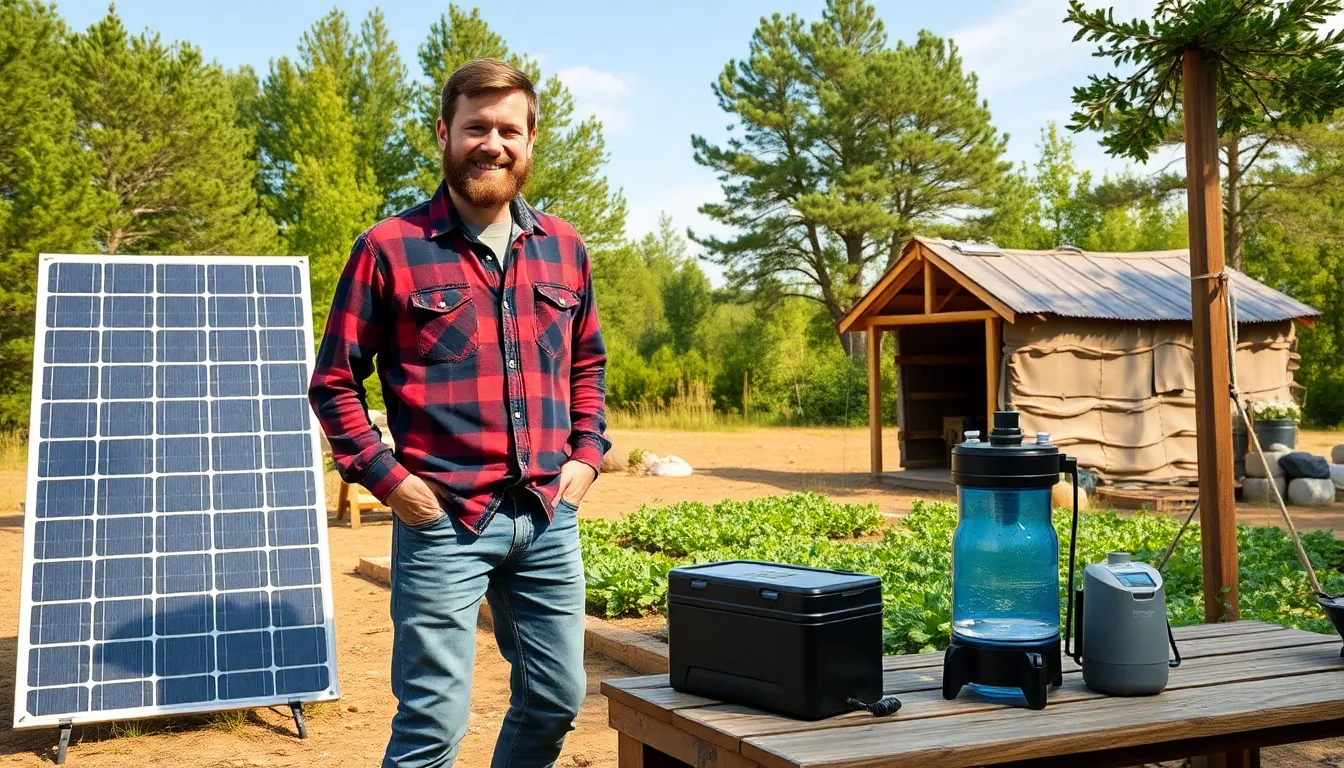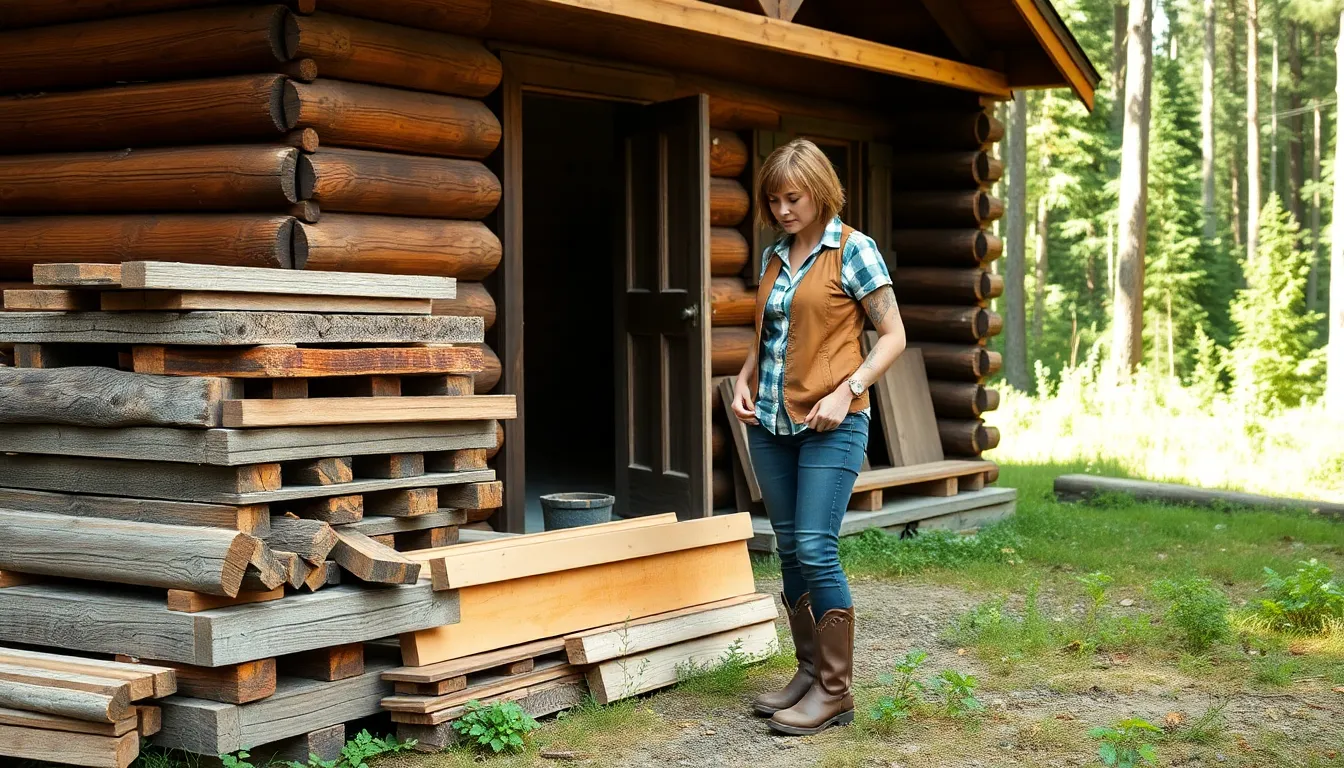Physical Address
304 North Cardinal St.
Dorchester Center, MA 02124
Physical Address
304 North Cardinal St.
Dorchester Center, MA 02124

Imagine waking up to the sound of chirping birds instead of blaring alarms. Off-grid living offers that blissful escape, but it doesn’t come without its challenges. To thrive in this self-sufficient paradise, having the right supplies is essential. Whether it’s solar panels that soak up sunshine or a reliable water filter that keeps you hydrated, these tools can make or break your off-grid adventure.
Off-grid living involves self-sufficient lifestyles that minimize reliance on public utilities. This approach promotes sustainability and a deeper connection with nature.
Off-grid living refers to situations where individuals or families operate independently from traditional power sources. Solar power, wind turbines, and hydro systems generate the necessary energy. For water, rainwater collection or nearby streams often provide resources. Waste management often includes composting and recycling practices to minimize environmental impact. This lifestyle fosters autonomy while encouraging a smaller ecological footprint.
Healthier living conditions often result from off-grid lifestyles. Accessing fresh air and nutritious food enhances overall well-being. Financial savings accumulate over time due to reduced utility bills and self-produced resources. Increased self-sufficiency cultivates resilience in the face of economic fluctuations. Personal fulfillment occurs through hands-on experiences related to gardening, renewable energy, and homesteading practices. Additionally, reduced environmental impact contributes positively, leading to a more sustainable planet for future generations.

Off-grid living requires specific supplies to ensure sustainability and self-sufficiency. Understanding these essentials aids in a successful transition to this lifestyle.
Wood, metal, and stone serve as primary construction materials. They provide durability for building shelters. Consider using reclaimed wood for a sustainable approach. Insulation materials like straw bales and wool enhance energy efficiency. Tools such as saws, hammers, and nails guarantee successful construction projects. Campers and yurts offer immediate solutions for temporary or permanent living spaces. Each option contributes to comfort and security.
Canned goods, dried fruits, and grains support long-term food storage. Growing a vegetable garden with seeds from local sources fosters fresh food access. Well-maintained water filtration systems eliminate contaminants for safe drinking. Rain barrels catch natural rainwater, providing a sustainable water source. Portable stoves and solar cookers enable cooking without traditional energy sources. Each item enhances self-sufficiency in food production and water access.
Solar panels convert sunlight into usable electricity. Wind turbines generate power, especially in windy areas. Portable generators offer backup energy during low sunlight or wind periods. Fuel-efficient wood stoves provide heat and cooking capabilities. Batteries store power for continuous energy supply. Each energy source contributes to independence from public utilities.
Finding the right tools and equipment is essential for successful off-grid living. They support self-sufficiency and sustainable practices.
Gardeners depend on a range of tools for effective food production. Basic hand tools include shovels, rakes, and hoes for soil preparation. Seeds, organic compost, and fertilizers like fish emulsion improve plant health. Quality pruners and trowels offer precision for harvesting and planting. Raised garden beds can increase yields and make maintenance easier. Planters and pots help with growing herbs and small plants indoors. Together, these tools create a productive garden environment.
Survival gear is critical for ensuring safety in off-grid living. Portable water filtration systems provide clean drinking water, essential for hydration. First aid kits offer medical supplies for emergencies, ensuring well-being. Multifunctional tools, such as Swiss Army knives, help tackle various tasks, from food preparation to basic repairs. Sturdy camping gear, including tents and sleeping bags, ensures comfort during outdoor excursions. Fire starters and cooking equipment allow for meal preparation in any situation. This gear enhances preparedness and resilience.
Renewable energy equipment plays a central role in off-grid living. Solar panels provide a reliable energy source, reducing dependence on fossil fuels. Wind turbines capture wind energy, supplementing solar power production. Battery storage systems store harvested energy for nighttime use. Portable generators offer backup power in case of low renewable energy. In addition, energy-efficient appliances minimize consumption, maximizing resources. By integrating various renewable energy solutions, off-grid living becomes more sustainable.
Effective storage solutions are crucial for managing supplies in an off-grid lifestyle. Proper organization maximizes resources and reduces waste.
Canning is a popular method for preserving fruits and vegetables, allowing for long-term storage without refrigeration. Dehydrating food enhances shelf life, making fruits and meats lighter and easier to store. Fermentation, another approach, not only preserves food but also boosts nutritional value. Root cellars work well for storing fresh produce, utilizing natural cool temperatures to maintain quality. Vacuum sealing protects against spoilage and pests, ensuring food lasts longer. Each method supports a self-sufficient lifestyle, reducing dependence on stores for essentials.
Rain barrels collect and store water for various uses, making them a reliable solution for off-grid living. Large storage tanks ensure a reserve supply during dry spells. Using food-grade containers safely stores water for drinking and other purposes. Gravity-fed systems optimize water distribution, reducing the need for pumps. Additionally, implementing natural filtration systems improves water quality before storage. Each option ensures access to clean water, a vital component of successful off-grid living.
Embracing off-grid living offers a unique opportunity to connect with nature while fostering self-sufficiency. By equipping oneself with the right supplies and tools, individuals can navigate the challenges of this lifestyle more effectively. The journey toward independence involves careful planning and a commitment to sustainability.
With essential supplies like solar panels, water filtration systems, and effective storage solutions, anyone can create a thriving off-grid environment. This approach not only promotes personal fulfillment but also contributes to a healthier planet. As more people seek this way of life, the benefits of reduced reliance on public utilities and a deeper connection to the environment become increasingly clear.